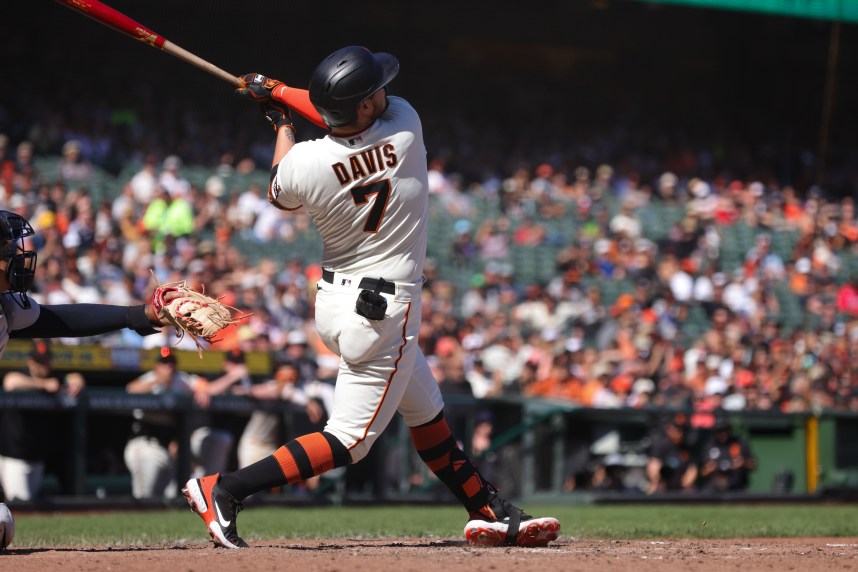
Another update on Oswald Peraza has been announced, as the New York Yankees will shut him down for 6-8 weeks with a shoulder injury. What the Yankees do in the starting lineup remains unchanged, but they’ll have to find a new reserve option for their infield. They could go internally with one of Jahmai Jones or Jorbit Vivas, but both would come with massive question marks and would be poor process.
Instead, the Yankees could turn to the trade or free agent for an option to give them insurance in the infield, and the San Francisco Giants are an excellent fit.
J.D. Davis, who no longer had a role on the team, has been designated for assignment and will be headed elsewhere. It’s unclear where that’ll be as of now, but the Yankees could be a team interested in his services.
What the Yankees Could Stand To Gain With J.D. Davis
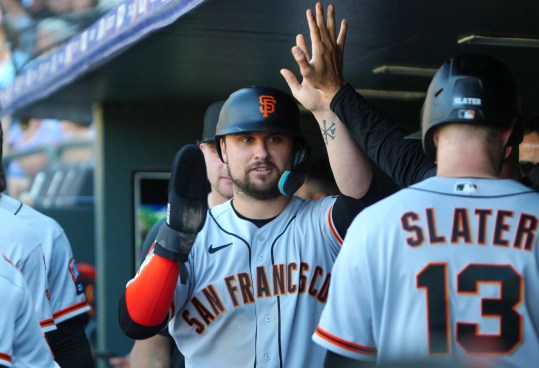
On the surface, acquiring a right-handed hitter with strikeout issues seems like the very last thing the Yankees should be after, but J.D. Davis is a different story. The 30-year-old slugger has reverse splits, meaning he actually performs better against right-handed pitching, and he could provide a nice thump to the Yankees’ infield. He’s played both first and third base, making massive strides this past season at the hot corner, and he could be a valuable bench bat for a team that is suddenly lacking infield depth.
J.D. Davis has a bat that’s built for the Bronx, and his swing could get better away from the cavernous dimensions of Oracle Park. Things are so bad at that ballpark that the San Francisco Giants haven’t had a hitter surpass the 30-HR threshold in a season since Barry Bonds in 2004 (45), which was two decades ago. Looking at his spray chart overlay, some opposite-hit barrels would clear the right field porch that typically benefits left-handed hitters.
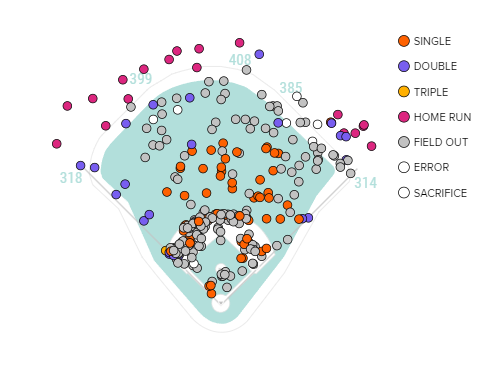
According to Baseball Savant’s Expected Home Run metric, J.D. Davis would have hit 41 home runs over the last three seasons, which would be six more than he hit (35) over that timespan. He’s not traditionally a home run hitter, and part of that could be the poor park dimensions of Oracle Park and Citi Field, which haven’t yielded high home run totals in recent seasons. The Yankees could naturally get more out of his profile simply because of the batted ball profile, but there are also some strong plate skills here as well.
He had one of the highest in-zone swing rates in the league (79.1%) while also having a better-than-average chase rate (26.5%), which, given his raw power, should result in strong numbers, but it just hasn’t. Fastballs, particularly ones over the middle of the plate, have eaten him alive, and both Mets and Giants fans are well-accustomed to the experience of watching Davis whiff at an extremely hittable pitch. That can be both infuriating and head-scratching, bringing up valid concerns about how his bat could play.
What I believe is that Davis is a part-time player, one who can excel in matchups against righties and play both third or first base in a pinch. The Yankees can absorb the strikeouts, the team added multiple contact-oriented bats in the form of Alex Verdugo and Juan Soto, who are both expected to play everyday roles in the lineup. Add on the strides that Gleyber Torres made to his hit tool and the duo of Anthony Rizzo and DJ LeMahieu in their corner infield, and suddenly the Yankees have a lineup that isn’t as strikeout-prone as people would expect.
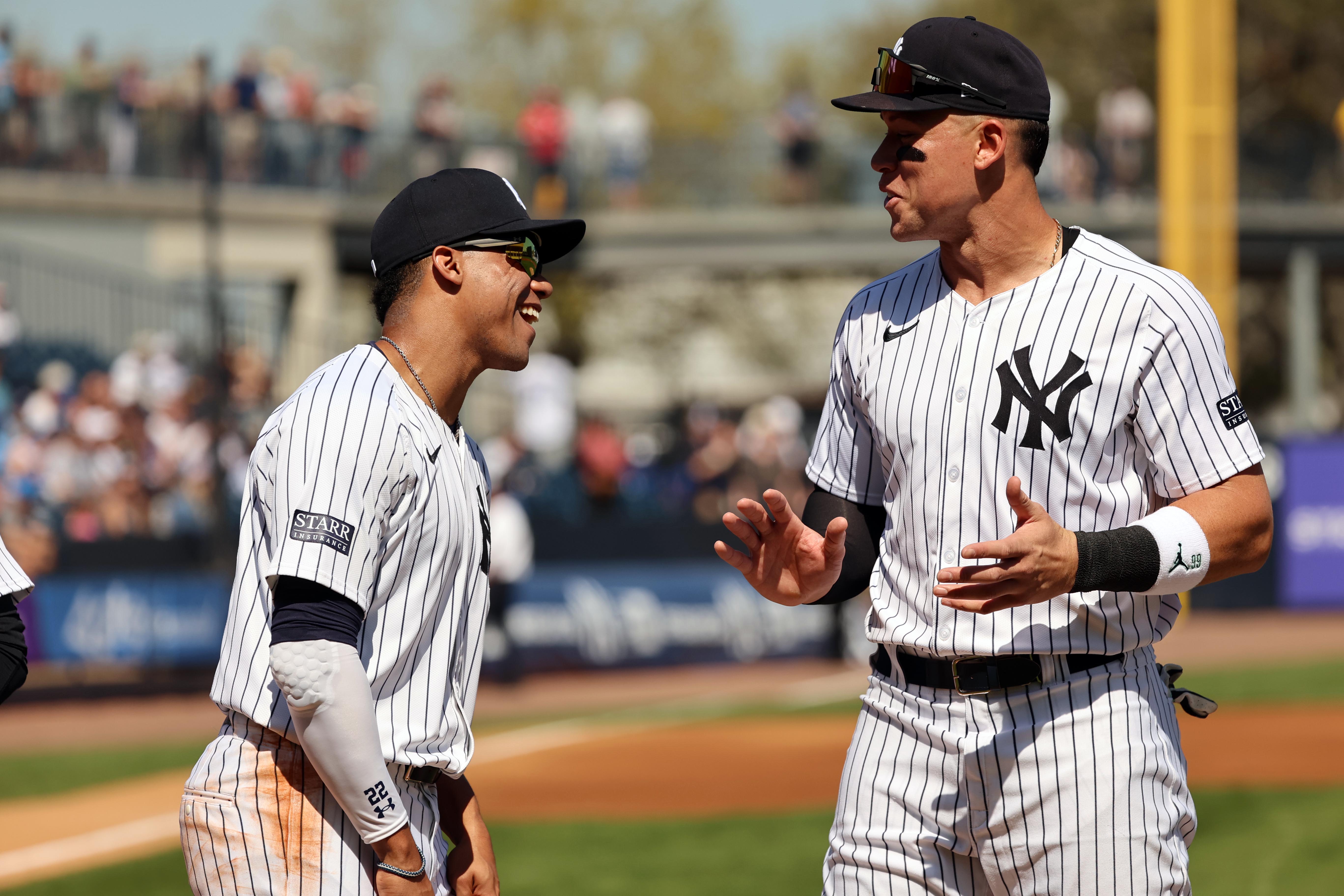
The questions aren’t really about his fit on the Yankees; they’re weak in the corner infield as the direct backup to Anthony Rizzo is DJ LeMahieu, who is slated to be their third baseman this year. Both of them are in their mid-30s as well and come with injury concerns that could rear their ugly heads at any moment. What is a valid question is whether the Yankees would be willing to make the financial expense it would take to claim him off of waivers or not.
Does it Make Sense to Acquire J.D. Davis?
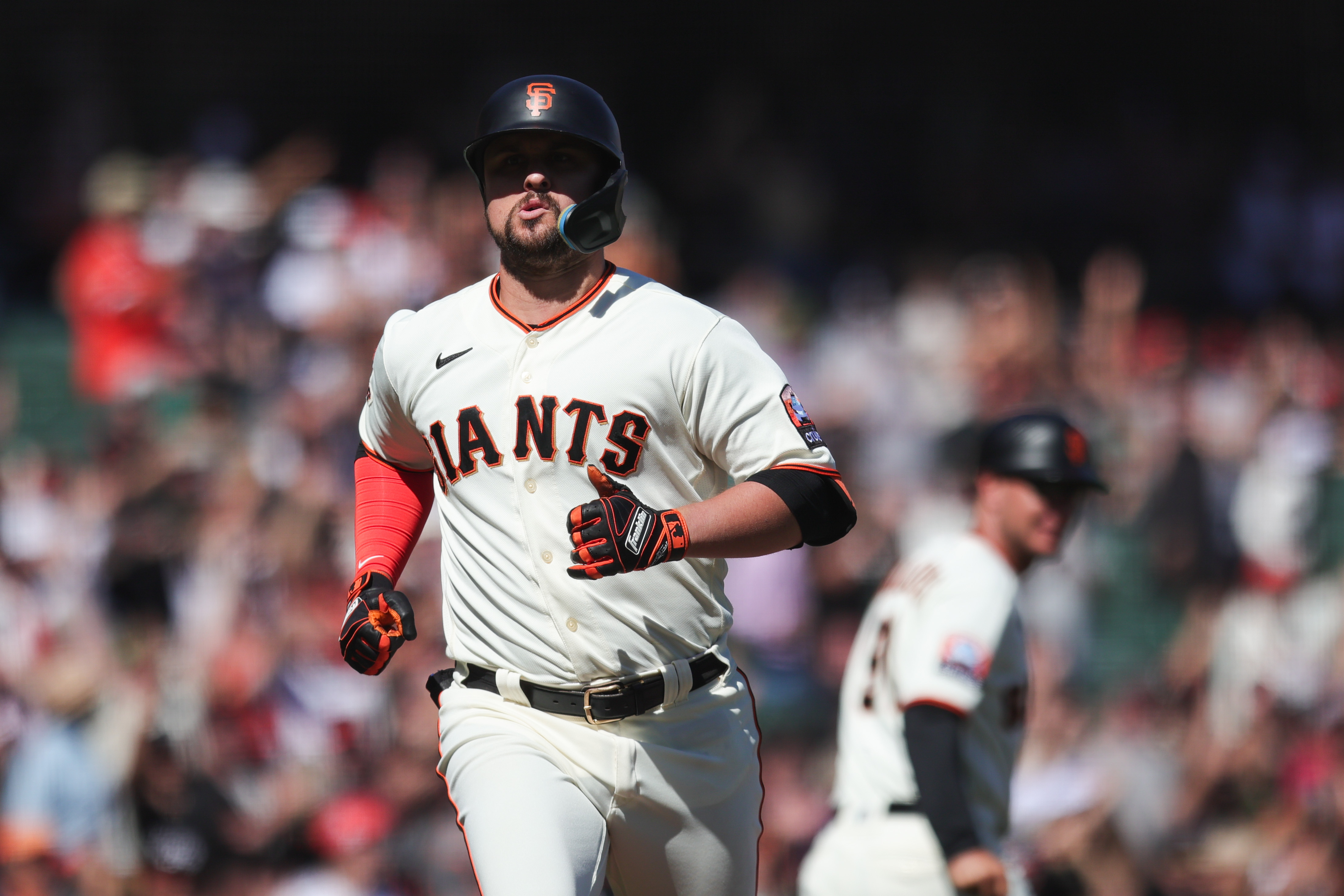
With the San Francisco Giants placing J.D. Davis on waivers, it means that teams can claim him, with the waiver order being determined based on record. The Yankees will have a decent chance at him because, usually, the worst teams in the league are cheap and won’t spend money. Only time will tell if the Yankees end up with a chance to claim him or not, but there’s still another hurdle that people are overlooking. Any money that the Yankees add to their payroll will come with a 110% tax on top of that, meaning that it would cost Hal Steinbrenner $14.49 million to add Davis.
I do not know the owner of the New York Yankees personally, but what I do know is that paying over $14 million for a player who doesn’t move the needle is a bit strange. The Yankees have been extremely selective with the money they have left over following the signing of Marcus Stroman, and it wouldn’t be particularly sensible to throw that caution away for a bench bat. What the Yankees could do, however, is potentially work out a deal with the Giants to get some financial relief.
Seeing how pitching could be a problem for the San Francisco Giants, given their wave of injuries to young arms, Yoendrys Gomez could be a name of interest to them. The right-hander has one MiLB option remaining and could fall behind in a Triple-A rotation that will likely start with Will Warren, Clayton Beeter, Luis Gil, Cody Poteet, and Tanner Tully to open the season. If the Yankees leverage Gomez in a deal, they could get the Giants to potentially eat enough money to have it make sense.
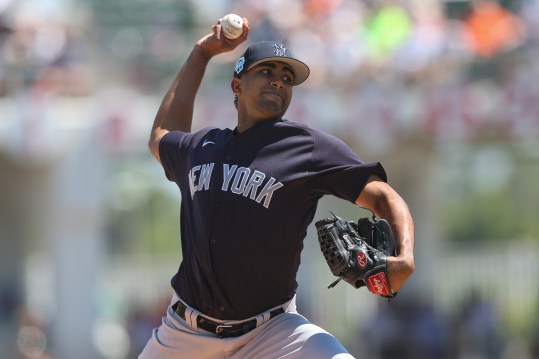
$2.9 million for six years of control over Gomez isn’t a bad deal for the Giants, who are seemingly willing to give Davis away for absolutely nothing. Their propensity to run out bullpen games would make the young right-hander a strong fit for their pitching staff, and he has the stuff to make it work. His deep pitch mix and great spin rates are why I ranked him as one of the 30 best prospects in the organization, and this new change of scenery could give him more playing time to flourish.
Putting the cost and player into perspective, the answer I walk away with is that there’s not a strong reason to feel either way about acquiring J.D. Davis. On the one hand, he could bolster the Yankees’ infield depth and give them insurance at two positions where there are question marks, but on the other, they may not even get the chance to land him. If you ask me, I don’t think we should be worried about money we don’t have, but Brian Cashman cannot operate under that same pretense.
I want the Yankees to land J.D. Davis, but the logistics could make it extremely difficult for the acquisition to come to fruition, given the $6.9 million price tag.





